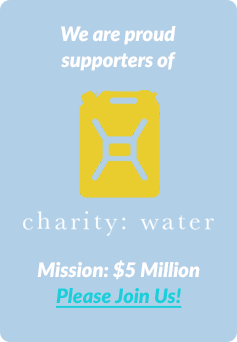My ï¬rst experience with forgiveness was an attempt to let go of a childhood of abuse and lies. It left me feeling broken beyond repair and in a world of chronic fatigue, depression, anxiety, IBS, body dysmorphia, and eating disorders.
I was taught forgiveness as a process of letting go. To me that meant erasing my childhood and anything to do with it. So I did. I let it go and ran from any pain that tried to follow me as I made a new life for myself.
As a girl “freed” from her past, every day I woke up in a haze. I felt like an imposter living someone else’s broken life. As much as I hated the constant running, as defeated and exhausted as I felt, as much as the woman I longed to be disagreed with the shame ï¬lled words and actions I chose, I felt empty and powerless.
Shoving as much busyness and hustle on my plate as I could, I was terriï¬ed that if I paused, even for a second, the old story would come crashing back in, and so I just kept running.
I had let go, yes. But what I had let go of was me. I let go of my truth. I let go of my experience. I let go of my power.
After 24 years of non-stop running, I crashed. Lying in the depths of total darkness, I was shown that forgiveness had nothing to do with putting as much distance between my painful past and I as possible, and I saw that doing so was hurting not only me but the people around me.
In that moment of pause, sitting alongside my pain for the ï¬rst time, I saw a light. A light rising from deep within. And in my willingness to sit alongside years of disowned pain, this light slowly transformed all the hurt into a raw, passionate, and invulnerable strength. I was ï¬nally set free to live as the woman I longed to be.
I was guided through this transformation using letter writing. I invite you to make the fluid process outlined below your own, and move through it as many times as it takes to ï¬nd peace.
1. Acknowledge that you’re upset and why.
Begin your letter exploring your feelings in a space of complete non-judgement. Invite love and curiosity into the heart of what you’re experiencing, and say exactly how you feel. No shaming and no editing allowed.
Especially when we’ve been abused physically, mentally, and/or emotionally, while on the surface level we’re furious with the person who has harmed us for what they’ve said or done, beneath that, there’s also a painful anger with this person for taking away our sense of peace, our sense of safety, our inner power, our joy, and our freedom.
As you write your letter, open up and explore this raw space without running from it. Explore how you felt in the moment, and how you feel now. As you invite curiosity into your pain, it will transform into deep, compassionate healing.
2. Say what you need to say.
Generally, we’re comfortable sharing just about everything except what weighs heaviest on our hearts. We don’t express these raw and vulnerable feelings because we’re scared it will be too much. Or that it will get us hurt. Or that it isn’t okay to say it. Or that we aren’t safe if we do. When you’re writing your letter, you are safe. And it’s your moment to speak. Share what you wish you could have said all along. The thoughts, feelings, and emotions that have been weighing heaviest on your shoulders for all these years.
The words, the feelings, the anger, the everythings, they need to get expressed. Holding onto them creates disease, feelings of isolation, anxiety, depression, etc. so let it all go. Ask the questions you want answers to and explore what those answers might be. As you do, you gently begin to take your power back.
3. Honor and acknowledge what you’ve learned.
Every single person we meet is a teacher. While it’s necessary that we honor the hurt they’ve caused us, in order to truly forgive, we must also acknowledge that their harmful actions have lead us to a deeper understanding of our selves in some way.
The release of the pain someone has caused you opens up the gateway to the gift they’ve given you. Perhaps that gift is a warrior inner strength. Perhaps that gift is an unshakeable determination. Perhaps that gift is a passionate crusade. Whatever it is, ï¬nd it, and honor them for delivering that into your life.
4. Give thanks.
End your letter thanking this person for what they’ve given you. What they have taught you. And where they have lead you. Honor that this person’s actions came from a harmful past of some sort.
And thank your Self for showing up to see the light in someone living in the throes of darkness — for that is the freedom of forgiveness.
May your letters of truth lead you back to the space of wholeness that never left you.
Remember: What is truly yours can never be taken. Your peace. Your freedom. Your joy. Your power. These are yours. Forever.






